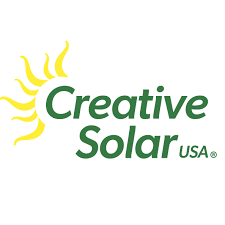



Better Earth
- Unverified Solar Profile
- Solar Financing Options
- Founded Former SolarCity Employee






Solar energy is not new trend - it's here for the long run first making its debut in the 1960's. However, it is only until recently, in 2010, when the industry exploded worldwide. Solar installations have increased by over 300% across the board from 2015. From commercial to residential, people are switching to solar at alarming rates thanks to generous government tax incentives.
While the popularity of the technology is at an all time high, customer education still lags behind. When taking the dive into solar, do you really know what you are signing up for or buying? In an effort to save you the headache, here is what you need to know before installing a solar system on your property.
Solar systems are comprised of multiple components, the hardware can usually be broken downn into three main parts:
Solar panel: Panels are the main components of the unit. Solar panels are categorized or rated depending on the number of watts produced every hour under specified conditions. For example, a 360-watt solar panel system will produce more energy than a 200-watt solar panel system. Also, panels rated highest in terms of efficiency are generally more expensive - however, you'd likely need less panels to produce similar electricity output.
Inverters: Inverters convert DC power produced by the solar panels into AC power. There are two types; micro-inverters and central inverters. Micro-inverters attach to every unit and convert the power at the panel, while central inverters are attached to several panels at once.
If your roof has several directions/angles or some panels face the shade, micro-inverters are your best bet. If your roof is large enough a central inverter may be more applicable. It's best to consult with a solar provider for their professional opinion. You can setup an appointment with a solar consultant at the following link>.
Racking; This is the process of mounting and securing the solar panels to your roof. Most racking systems have rails that hold them securely in place through inclement weather.
You should calculate your own cost benefits depending on your unique electrical needs. Purchasing a system is fairly expensive up-front but pays better dividends overtime. Financing equipment is a friendly alternative. Leasing allows you to access electricity with little or even no down payment. You can receive a free solar consultation by clicking and filling out the short form here
The benefits are limited. For instance, the company you lease from owns the unit, and you pay them a specific rate for the power. When the lease is over, the leaser reclaims the solar system. Ensure you analyze the total cost of leasing and then compare what you will save against the benefits you will receive from owning it outright.
Robust solar units last for several years and a good manufacturer should be more than happy to give a 25-year warranty. Nonetheless, note that a warranty will be of no use if the installer closes the shop. Ensure you do your research and conduct business with a reliable company. You can compare warranties, equipment, and other variables using the solar provider comparison builder tool.
There are many types of roofs. Before installing any solar system, ensure your roof is spacious enough to accomodte the panels you need. If roofing space is limited, chances are you will not get the benefit you expect from the installation. If part of your roof is damaged or you will require another roof in the near future than it may be best to hold off on your installation. Take care of any repairs before you install the panels.
By using solar over a 20-year period, you may save an estimated $10,000 and $30,000. The total savings will depend on your electricity usage, size of home, and the state you reside in. Each state offers different rebates or incentives in addition to the federal tax savings. Also, unlike utility bills, investing in a solar system provides a return on investment because you own the energy you are producing.
You will get both state and federal benefits when you invest in a solar panel in your commercial or residential property. As a taxpayer, you can claim up to 30% of the installation costs depending on the tax year and current regulations/policy.
Unlike natural gas or coal, the sun is an infinite source of power. This means using solar panels will allow you to minimize dependence on fossil fuels and foreign oil, which will lead to a more predictable and stable energy bill, particularly when the power demand is high. In addition to producing your own power you can also store excess energy produced in a battery system. This battery system acts similar to a generator - allowing you to power your property during electrical power outages.
Solar panels generate energy without necessarily emitting dangerous gases. Although there is minimal carbon footprint, the clean power produced from the unit is free of pollutants. Average homes may produce up to 14,500 pounds of carbon every year. By installing solar units, you can minimize your carbon footprint significantly.
Solar systems are built to last for +20 years. During this time, they require little or no maintenance. Solar energy efficiency is also improving rapidly so the same panels from last year are potentially more efficient.
While installing solar systems provides invaluable benefits, the initial cost is admittedly high. Depending on the contractor/provider, prices may vary extensively. The silver lining is that most states are invested in countering the adverse global warming effects by encouraging solar manufacturers to reduce solar panel rates. On the federal level up to a 30% tax break incentive is applicable in additiona to the state level rebates and incentives. You can compare and request a consultation from the leading solar providers in your state by visiting the following link
When looking to move, the solar provider you have contrated with may switch the lease agreement to a new user to avoid incur any costs of dismantling the system. They work closely with title agents and realtor's to ensure a flawless transition to a new tenant. However, if you choose to take the system with you., the contractor can expedite the process, but you will have to take care of the cost of de-installation and re-installation.
Solar installation may not need a big space for home users, as it can be easily installed on the roof. However, that cannot produce energy for big firms. For companies, a big space is required for the unit to provide enough power consistently.
While solar power may have a few disadvantages, you probably agree the generous advantages outweigh the flaws. Owning your own energy produces zero emission, reduces your carbon foot print and your monthly bill. If you're looking for monthly bill relief than solar an option you should explore.
LA Solar Group

Tesla Solar

SunPower
